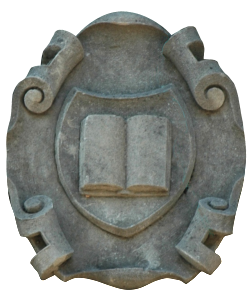
Lecture Listening Guides
by Dr. David Capes
Lecture by Scot McKnight
Oct 26, 2019
“The Apostle Paul: ‘No One Knows the Trouble I’ve Seen’”
Listening Guide
- How important has the book of Roman been to the church. Why?
- Why are chs. 14-16 so significant to the letter?
- Why does he think about we ought to read it backwards?
- What is the new perspective on Paul? Who are some of its chief proponents?
- What is a lament? What are the five elements of a lament?
- How does reading Romans as lament benefit the careful interpreter?
- What is the ethnic tension Paul faces in accomplishing his mission?
- What does McKnight mean by “lived theology”? How does this relate to Paul’s ethics?
- Be able to define Christoformity?
- What is the Roman path to glory? How does Paul’s ethic compare to it? How does conformity to Christ compare with the Roman path?
- Where does McKnight say you ought to begin Romans to understand its context? Why?
- Who was Phoebe? Why is she important to the letter?
- What does he mean by a performed letter? According to McKnight, how many house churches were in Rome? How might the letter have been read?
- Who were the earliest believers in Rome? What did the emperor Claudius do to them?
- Where did most of the Christ-believers in Rome live?
- Who are “the strong” and “the weak”?
- What practices were decisive, symbolic markers of faithful observance of the Torah among Jews and some Christ-followers?
- How do the issues of power, privilege and status relate to the strong and the weak?
- How does Christoformity relate to the strong welcoming the weak?
At the 45 minute mark, the video stalled. You can jump ahead by moving the time forward 30-60 seconds.
- What is central to Jewish identity? Why?
- What chapters are the most difficult and obscure part of the book of Romans? Why is it so difficult? To whom is it addressed?
- How does reading Romans backwards affect the reading of Romans 1-4? Why is stereotyping such a problem?
- What does McKnight say is the significance of Romans 5-8?
- What is the Way of Adam?
- What is the way of Christ?
Questions and answers
- How does McKnight say this works within the church today?
- Where is the unity? How do we participate in that unity?
- What does McKnight say about invisible people in the churches?

